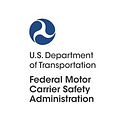We are excited to bring you the latest edition of our blog series on grants. The Federal Motor Carrier Safety Administration’s (FMCSA) four discretionary grants fund projects each year that improve road safety, helping us get closer to the National Roadway Safety Strategy’s goal of zero fatalities on our roadways.
Today’s article focuses on FMCSA’s Commercial Motor Vehicle Operator Safety Training (CMVOST) Grant Program.
CMVOST grants are helping FMCSA invest in America by providing new career opportunities for veterans, strengthening America’s supply chains, and supporting the workers who keep our economy moving.
This year, FMCSA awarded 27 CMVOST grants totaling nearly $3.5 million. Between this year’s and last year’s grant funding, nearly 2,000 veterans and other individuals will be able to receive CDL training through FMCSA’s grants.
What Does a CMVOST Grant Fund?
Commercial Motor Vehicle Operator Safety Training (CMVOST) grants are designed to improve roadway safety by providing enhanced training for individuals to earn a commercial driver’s license (CDL). The goal of the program is to increase the number of CDL holders to meet the nation’s growing demand for truck drivers.
The CMVOST grant program specifically focuses on providing opportunities for current or former members of the United States Armed Forces (including National Guard members and reservists) and certain family members to enter the truck or bus industry as professional drivers. It also provides training opportunities for individuals from rural, refugee and other underserved communities.
Many of the grant recipients are community colleges that provide CDL training, but any organization listed on FMCSA’s Training Provider Registry may be eligible. Applicants may include public or private colleges, universities, vocational-technical schools, post-secondary educational institutions, truck driver training schools, associations and state and local governments, including federally recognized Native American Tribal governments, which support CMVOST training activities.
While individuals aren’t eligible for a CMVOST grant, grants are typically used to fund scholarships for veterans and other individuals seeking to enroll in CDL training courses. These CDL scholarships are used toward course enrollment fees, relieving some of the financial burden associated with earning a CDL.
CDL Training Grants in Action — Supporting Rural Communities
CMVOST grants are helping provide CDL training to individuals living in rural communities in areas like the Pacific Northwest. Klamath Community College in Klamath Falls, Oregon, received CMVOST grants this year and last year to help individuals enroll in the college’s CDL training courses.
That includes students like Jasmine McClean, a recent graduate of Klamath Community College’s CDL Training Program. Jasmine had to take time off from her current job to complete the CDL classes, and FMCSA’s CMVOST grant helped cover the expenses for those classes. Without the CDL scholarship, she would not have been able to enroll in CDL training as she worked to change careers.
This year’s grant award for Klamath Community College is expected to help facilitate the enrollment of at least 23 veterans and other individuals in the CDL program. Linn-Benton Community College, also in Oregon, received a CMVOST grant that will serve at least 20 veterans. Finally, next door in the state of Washington, Walla Walla Community College is expected to fund the enrollment at least 27 veterans in their CDL training program using the CMVOST grant it received.
Providing New Career Opportunities
FMCSA’s CMVOST grants are helping provide new opportunities for career changes for thousands of people across the country. This is evident in Tucson, Arizona, where Pima County Community College trains over 100 students a year in their CDL program.
Doreen Mitchel is a recent graduate from the Pima County Community College CDL program. She was unemployed for about a year before she enrolled in the program looking for a new career. The CMVOST grant helped cover tuition expenses so she could earn her CDL and become a truck driver. Doreen says her new career has led to additional opportunities and has provided a sense of financial freedom.
This year, Pima County Community College received over $131,000 to provide CDL scholarships to students entering the CDL program. According to the community college, about 50 percent of CDL students every year are veterans or from underserved communities.
From Teaching to Trucking
In Maryland, individuals are receiving good-paying jobs in trucking due to FMCSA’s grants. The Community College of Baltimore County (CCBC) is helping make this happen with the CMVOST grant funding they received this year and last year.
Destiny Franklin was a passionate teacher who wanted to seek new career opportunities. After learning about CCBC’s truck driver training program and the program’s CDL scholarship, she enrolled in the program and earned her CDL. Now with a new job as a truck driver, she hopes to gain more experience and one day teach new CDL students.
This impact will be magnified across Maryland, because this year three community colleges were awarded CMVOST grants in the state: CCBC, Cecil College, and Wor-Wic Community College.
Investing in America
Overall, the agency awarded nearly $150 million this year through its four discretionary grants. To date, the U.S. Department of Transportation has announced more than $500 billion in Bipartisan Infrastructure Law funding for over 63,000 specific projects and awards in all 50 states, D.C., and U.S. territories.
You can be a part of this impact across the country. The Notice of Funding Opportunity for next year’s CMVOST grants will be released soon, giving eligible organizations a chance to apply.
FMCSA recently hosted a webinar with more information about CMVOST grants and to assist with the application process. If you missed that webinar, a recording will be available on FMCSA’s website shortly.
Learn more about CMVOST and other grants and how you can receive assistance with grant writing at https://www.fmcsa.dot.gov/grants.
